Resources
In response to our increasingly global and multicultural world, undergraduate degree plans have come to include courses, which meet the Diversity requirement. While diversity may have a variety of definitions, clearly the educational institution believes that all students earning a degree should complete course work that exposes them to cultures not their own. Courses that fulfill Diversity requirements often include "Introduction to World Religions," among others. Even a traditional-style teaching of such a course will accomplish a certain degree of broadening of students' perspectives. The risk, however, is that at the end of the course the students are simply better informed about sets of people whom they would still objectify as the other. This article describes an experiential method of teaching which enables students to begin to change their consciousness, as well as their body of information, by learning to experience the other as self. The author calls this the identification/participation method.

This volume addresses the limitations of an instrumental perspective on collaboration and explores why stakeholders in higher education should refocus attention on collaboration as a source of faculty learning. The chapters establish a theoretical basis for thinking about faculty learning and then use case studies to explore this topic in the context of service or outreach, research, and teaching. Included as well are a meta-analysis of the cases to demonstrate what they teach about contexts that promote faculty learning and a discussion of the implications of the analysis for higher education policy and practice, including the evaluation of collaboratively produced work. The framework and cases are useful to an audience of academic leaders committed to faculty development and to creating hiring, promotion, and tenure policies that reward the full range of scholarly pursuits. They should also prove instructive to faculty embarking on interdisciplinary teaching, research, or outreach activities. This is the 102nd issue of the Jossey-Bass quarterly report series New Directions for Teaching and Learning. (From the Publisher)
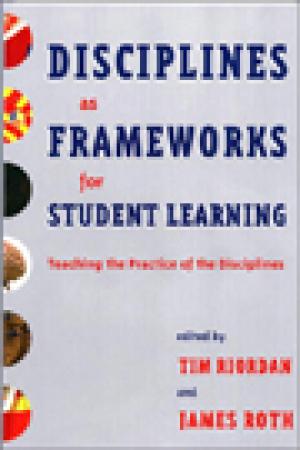
Creating ways to make a discipline come alive for those who are not experts - even for students who may not take more than one or two courses in the disciplines they study - requires rigorous thought about what really matters in a field and how to engage students in its practice. Faculty from Alverno College representing a range of liberal arts disciplines - chemistry, economics, history, literature, mathematics and philosophy - here reflect on what it has meant for them to approach their disciplines as frameworks for student learning. The authors all demonstrate how the ways of thinking they have identified as significant for their students in their respective disciplines have affected the way they design learning experiences. They show how they have shaped their teaching around the ways of thinking they want their students to develop within and across their disciplines; and what that means in terms of designing assessments that require students to demonstrate their thinking and understanding through application and use. (From the Publisher)
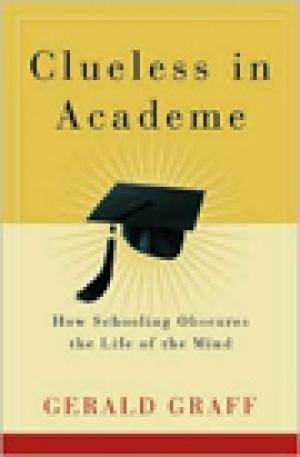
Our schools and colleges often make the intellectual life seem more impenetrable, narrowly specialized, and inaccessible than it is or needs to be, argues the eminent scholar and educator Gerald Graff, whose provocative book offers a wealth of practical suggestions for making the culture of ideas and arguments more readily understandable. (From the Publisher)
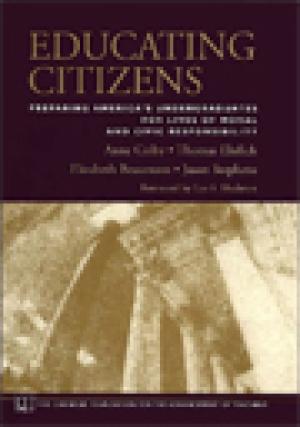
Educating Citizens reports on how some American colleges and universities are preparing thoughtful, committed, and socially responsible graduates. Many institutions assert these ambitions, but too few act on them. The authors demonstrate the fundamental importance of moral and civic education, describe how the historical and contemporary landscapes of higher education have shaped it, and explain the educational and developmental goals and processes involved in educating citizens. They examine the challenges colleges and universities face when they dedicate themselves to this vital task and present concrete ways to overcome those challenges. (From the Publisher)
A college student getting a liberal arts education ponders filling out a questionnaire that includes an opportunity for him to evaluate his instructor. At times it appears that the purpose of his education is just to entertain him.
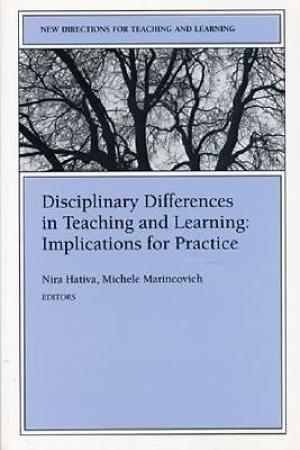
This volume of New Directions for Teaching and Learning increases our knowledge and understanding of the causes and consequences of disciplinary differences in the patterns of teaching and learning, in the instructional strategies to increase teaching effectiveness, in the culture and environment in which teaching takes place, and in faculty and students' attitudes, goals, beliefs, values, philosophies, and orientations toward instruction. Despite their practical and pervasive influence, disciplinary differences have been subjected to relatively little systematic study, especially in their effect on the quality of teaching and learning in higher education. This volume both provides new summaries of important studies on disciplinary differences and points out promising directions for further research. This is the 64th issue of the quarterly journal New Directions for Teaching and Learning. For more information on the series, please see the Journals and Periodicals page. (From the Publisher)
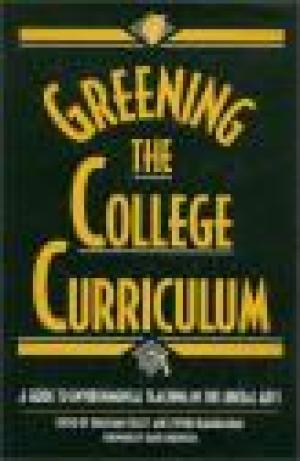
Greening the College Curriculum provides the tools college and university faculty need to meet personal and institutional goals for integrating environmental issues into the curriculum. Leading educators from a wide range of fields, including anthropology, biology, economics, geography, history, literature, journalism, philosophy, political science, and religion, describe their experience introducing environmental issues into their teaching. (From the Publisher)
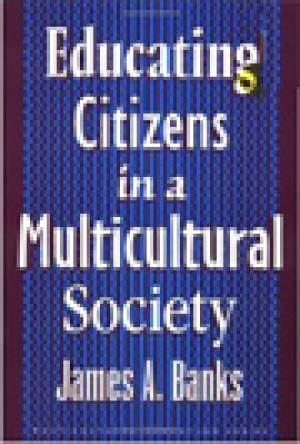
The thousands of immigrants who enter the United States each year, the increasing number of children who speak a first language other than English in the schools, and the ever-widening gap between rich and poor are some of the realities that educators face today. Given these conditions, it is increasingly difficult to prepare students for democratic citizenship. Bringing together years of work as an expert on multicultural education, James Banks shows how we can prepare students to effectively participate in a society that reflects ethnic, cultural, and class diversity at the same time that we promote national unity and the public good. (From the Publisher)